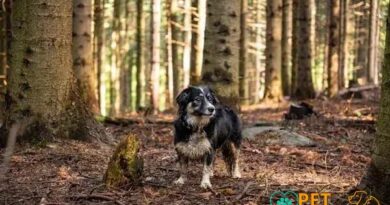What is Hunting dogs
What is Hunting Dogs?
Hunting dogs are specially trained canines that assist hunters in locating, tracking, and retrieving game. These dogs have been bred for specific traits that enhance their ability to perform tasks related to hunting, such as keen senses, agility, and stamina. Various breeds are categorized as hunting dogs, each serving unique roles in the hunting process.
Types of Hunting Dogs
There are several types of hunting dogs, primarily categorized into three groups: pointers, flushers, and retrievers. Pointers are known for their ability to locate game and signal their presence by pointing with their nose. Flushers, on the other hand, are trained to flush out birds from their hiding spots, while retrievers excel in fetching game after it has been shot. Each type has distinct characteristics that make them suitable for specific hunting scenarios.
Breeds of Hunting Dogs
Some popular breeds of hunting dogs include the Labrador Retriever, Beagle, German Shorthaired Pointer, and Coonhound. The Labrador Retriever is renowned for its friendly disposition and exceptional retrieving skills, making it a favorite among waterfowl hunters. Beagles, with their strong sense of smell, are often used for tracking small game. German Shorthaired Pointers are versatile hunters, adept at both pointing and retrieving, while Coonhounds are known for their ability to track larger game.
Training Hunting Dogs
Training is crucial for hunting dogs to ensure they can perform their tasks effectively. Basic obedience training is the first step, followed by specialized training that focuses on hunting skills. This may involve teaching the dog to track scents, respond to commands in the field, and retrieve game. Consistency and positive reinforcement are key components of successful training programs for hunting dogs.
Hunting Dog Equipment
Proper equipment is essential for both the hunter and the hunting dog. Common gear includes collars, leashes, and harnesses designed for comfort and safety. Additionally, hunters often use specialized vests for their dogs, which can provide protection from harsh environments and help carry essential supplies. Training aids, such as dummies and scent trails, are also used to enhance the dog’s skills.
The Role of Hunting Dogs in Conservation
Hunting dogs play a significant role in wildlife conservation efforts. By assisting hunters in managing game populations, these dogs help maintain ecological balance. Responsible hunting practices, supported by skilled hunting dogs, contribute to sustainable wildlife management, ensuring that species remain healthy and populations are kept in check.
Health and Care for Hunting Dogs
Like all dogs, hunting dogs require regular veterinary care, a balanced diet, and ample exercise to stay healthy. Their active lifestyle demands a diet rich in nutrients to support their energy levels. Regular check-ups and vaccinations are vital to prevent diseases that could affect their performance in the field. Additionally, grooming and dental care are essential to maintain their overall health.
Hunting Dog Competitions
Hunting dog competitions are popular events that showcase the skills of various breeds. These competitions often include trials for retrieving, tracking, and obedience, allowing handlers to demonstrate their dogs’ abilities. Success in these events not only highlights the dog’s training but also enhances the breed’s reputation among hunters and enthusiasts.
Choosing the Right Hunting Dog
When selecting a hunting dog, potential owners should consider factors such as the type of game they plan to hunt, their living situation, and the time they can dedicate to training. Each breed has unique traits that may make it more suitable for specific hunting styles. Researching breeds and understanding their needs is crucial for a successful partnership between hunter and dog.




